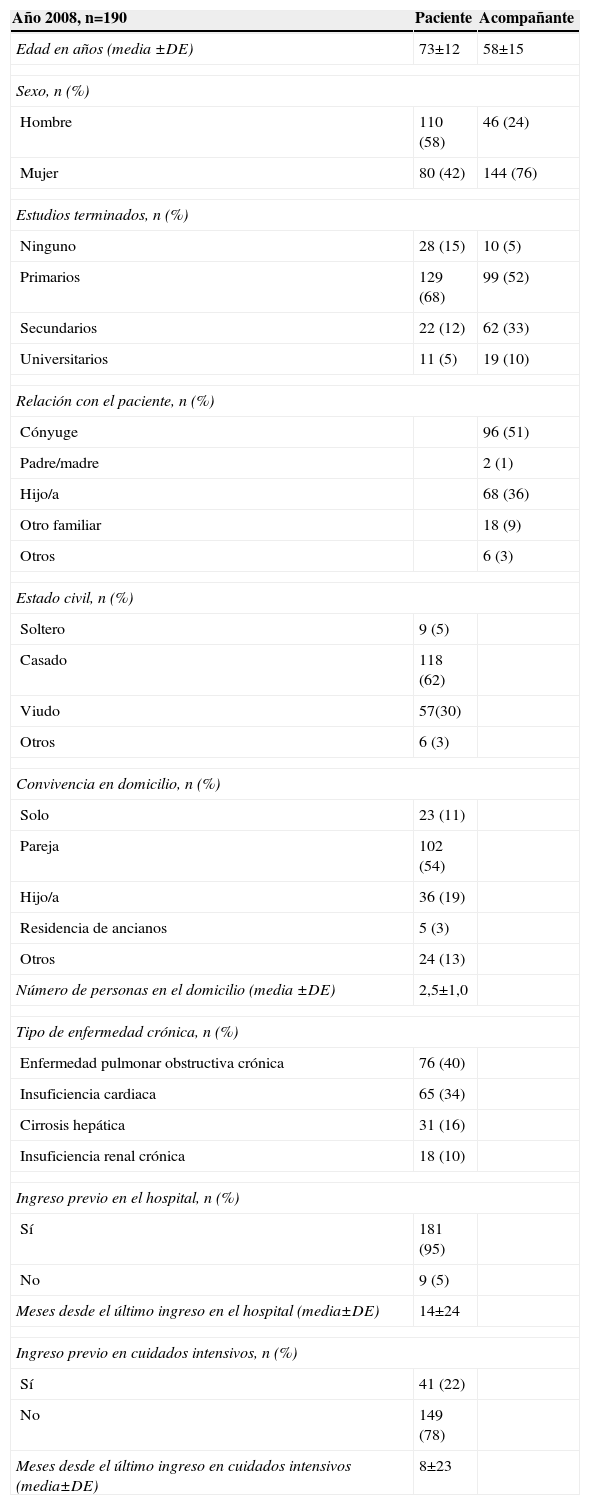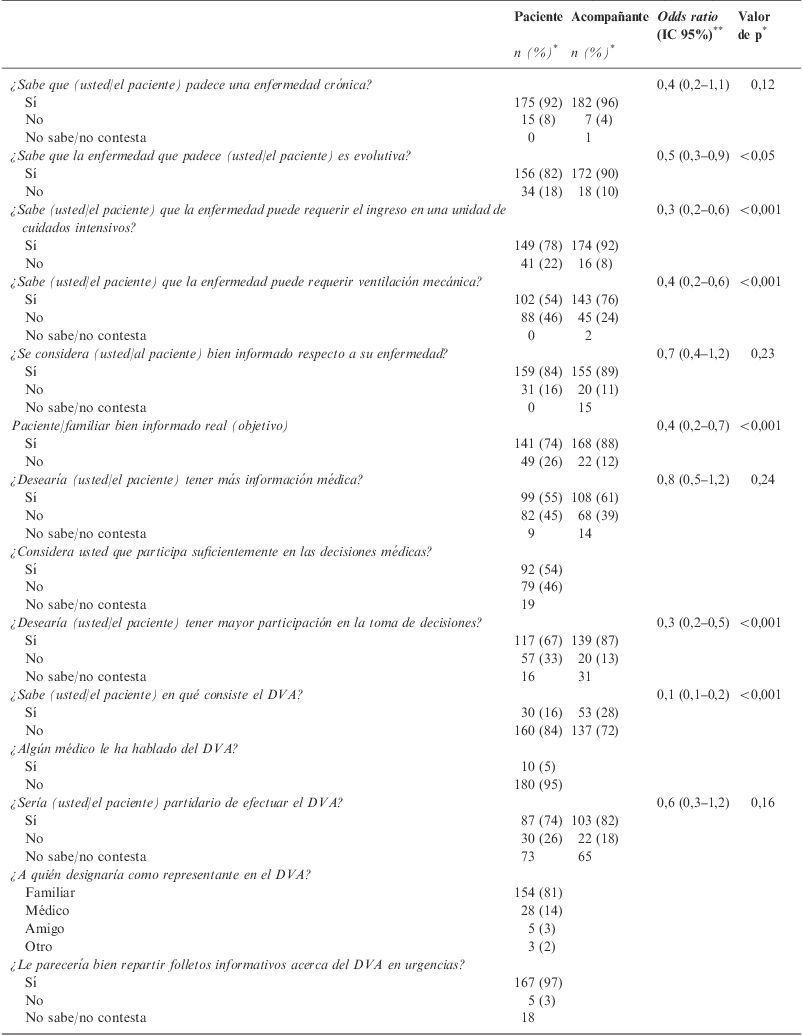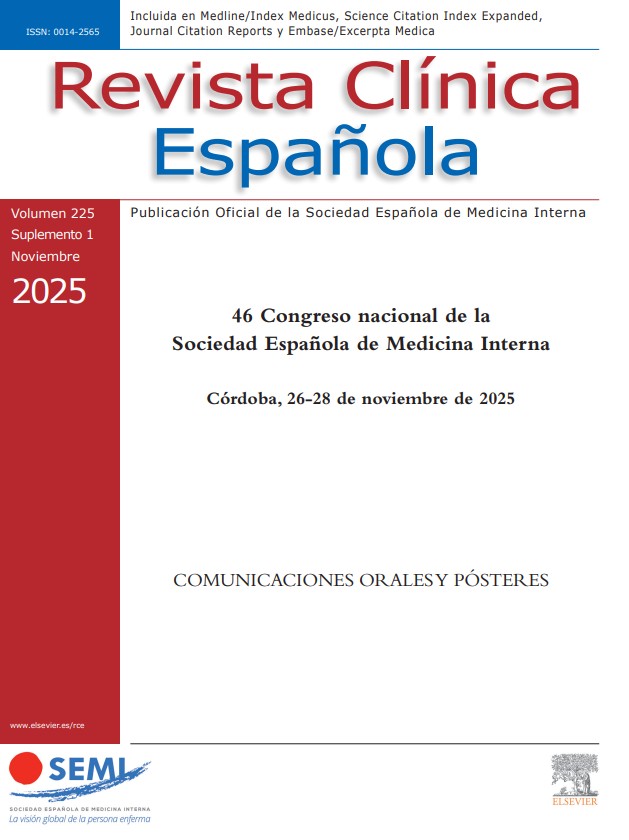Evaluar el conocimiento del documento de voluntades anticipadas (DVA) en pacientes con enfermedades crónicas que acuden a urgencias por descompensación y en sus acompañantes. Conocer el posicionamiento del paciente a redactar el DVA e investigar factores asociados.
Material y métodoEstudio descriptivo sobre pacientes con enfermedad crónica atendidos en urgencias de un hospital urbano universitario. Se consignaron variables clinicodemográficas y, tras el control de su sintomatología, se efectuó una entrevista-encuesta oral y anónima. Como variables dependientes se consideraron el conocimiento previo del DVA y la predisposición a confeccionarlo. Se analizó si existían variables asociadas a ellas.
ResultadosSe entrevistaron 380 personas. Los acompañantes, con respecto a los pacientes, eran más frecuentemente mujeres (el 76 frente a el 42%; p<0,001), más jóvenes (58±15 frente a 73±12; p<0,001) y con mejor conocimiento de la enfermedad (el 88 frente a el 74%; p<0,001) y del DVA (el 28 frente a el 16%; p<0,001). Tan solo un 5% de los pacientes había recibido información del DVA de su médico y el único factor asociado al buen conocimiento fue haber finalizado estudios secundarios (p<0,05). El 46% se mostró favorable a realizar el DVA, y el único factor asociado fue una edad igual o inferior a 70 años (p<0,05). El 88% de los pacientes se mostró partidario de distribuir folletos informativos en urgencias.
ConclusionesSe constata un desconocimiento generalizado del DVA en pacientes con enfermedades crónicas y en sus acompañantes. No obstante, casi la mitad de los pacientes estarían dispuestos a su confección. Los servicios de urgencia hospitalarios pueden contribuir a mejorar la información.
To evaluate the patient's and their caregiver's knowledge of the advance directive document (ADD) in patients with chronic diseases who come to the emergency department due to decompensation and their caregivers. To discover the patient's willingness and associated factors to draw up an ADD.
Matirial and methodsA descriptive cohort study including patients with an acutely decompensated chronic evolving disease attending the ED medicine section at an urban tertiary teaching hospital was performed. The patients’ demographic and clinical variables were recorded. After control of their symptoms, an anonymous structured oral interview was also administered. Dependent variables included were previous knowledge of the ADD, and the patient willingness to draw it up. The relationship among independent and dependent variables was analyzed.
ResultsA total of 380 people (190 patients and 190 carers) were analyzed. Compared with patients, carers were more frequently women (76% vs 42%, p<0.001), younger (58±15 vs 73±12, p<0.001), and had a better knowledge of the disease (88% vs 74%, p<0.001) and of the ADD (28% vs 16%, p<0.001). Only 5% of the patients had received ADD information from their physician. The only factor associated with the patients’ previous knowledge of the ADD was to have completed at least secondary school (p<0.05). Forty-six percent of patients were favorable to the drawing up of an ADD. The only variable associated with such a willingness was to be 70 or younger (p<0.05). Eighty-eight percent of the patients were in favor of the distribution of information leaflets in the ED.
ConclusionsThere is poor patient and carer knowledge regarding the ADD among patients with chronic diseases. Nonetheless, almost half of patients would be willing to draw up an ADD. EDs can contribute to improve the information about it.
Artículo
Diríjase desde aquí a la web de la >>>FESEMI<<< e inicie sesión mediante el formulario que se encuentra en la barra superior, pulsando sobre el candado.

Una vez autentificado, en la misma web de FESEMI, en el menú superior, elija la opción deseada.

>>>FESEMI<<<










